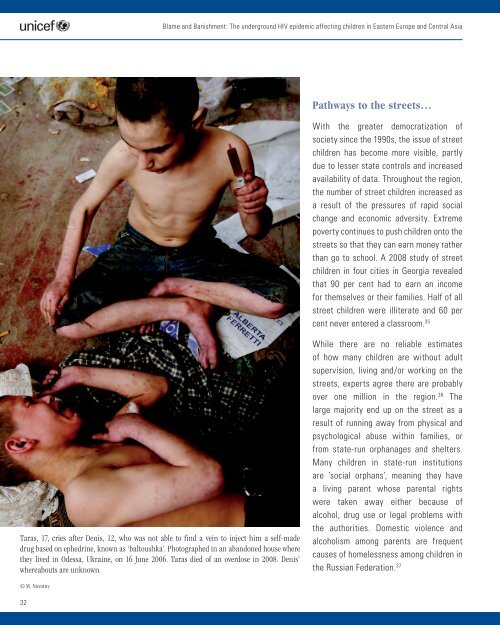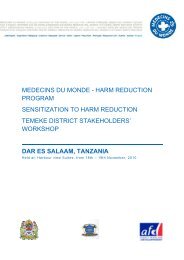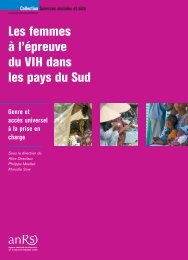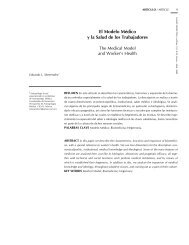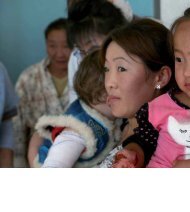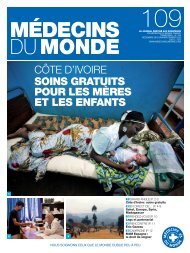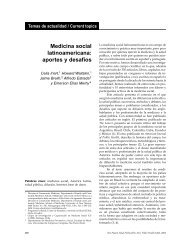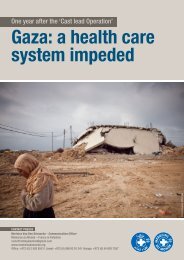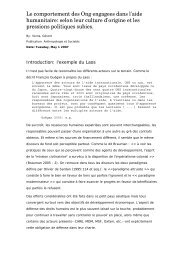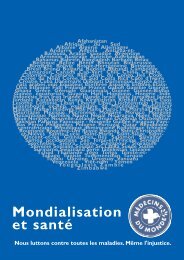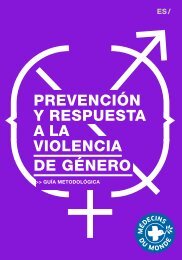Blame & Banishment - Médecins du Monde
Blame & Banishment - Médecins du Monde
Blame & Banishment - Médecins du Monde
Create successful ePaper yourself
Turn your PDF publications into a flip-book with our unique Google optimized e-Paper software.
<strong>Blame</strong> and <strong>Banishment</strong>: The underground HIV epidemic affecting children in Eastern Europe and Central Asia<br />
Pathways to the streets…<br />
With the greater democratization of<br />
society since the 1990s, the issue of street<br />
children has become more visible, partly<br />
<strong>du</strong>e to lesser state controls and increased<br />
availability of data. Throughout the region,<br />
the number of street children increased as<br />
a result of the pressures of rapid social<br />
change and economic adversity. Extreme<br />
poverty continues to push children onto the<br />
streets so that they can earn money rather<br />
than go to school. A 2008 study of street<br />
children in four cities in Georgia revealed<br />
that 90 per cent had to earn an income<br />
for themselves or their families. Half of all<br />
street children were illiterate and 60 per<br />
cent never entered a classroom. 35<br />
Taras, 17, cries after Denis, 12, who was not able to find a vein to inject him a self-made<br />
drug based on ephedrine, known as ‘baltoushka’. Photographed in an abandoned house where<br />
they lived in Odessa, Ukraine, on 16 June 2006. Taras died of an overdose in 2008. Denis’<br />
whereabouts are unknown.<br />
While there are no reliable estimates<br />
of how many children are without a<strong>du</strong>lt<br />
supervision, living and/or working on the<br />
streets, experts agree there are probably<br />
over one million in the region. 36 The<br />
large majority end up on the street as a<br />
result of running away from physical and<br />
psychological abuse within families, or<br />
from state-run orphanages and shelters.<br />
Many children in state-run institutions<br />
are ‘social orphans’, meaning they have<br />
a living parent whose parental rights<br />
were taken away either because of<br />
alcohol, drug use or legal problems with<br />
the authorities. Domestic violence and<br />
alcoholism among parents are frequent<br />
causes of homelessness among children in<br />
the Russian Federation. 37<br />
© M. Novotny<br />
32


